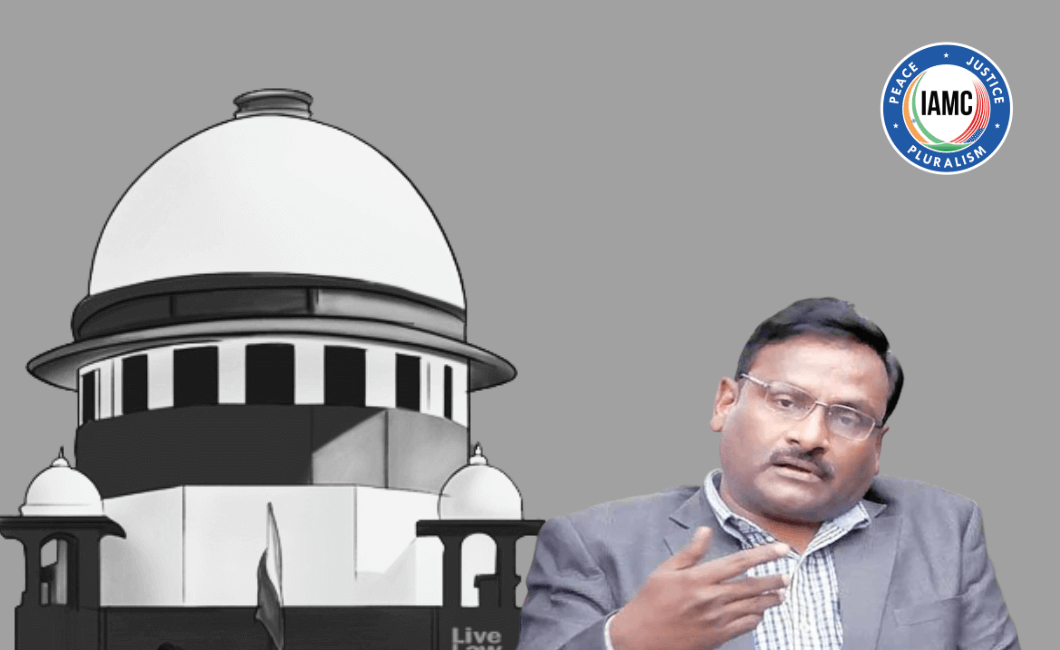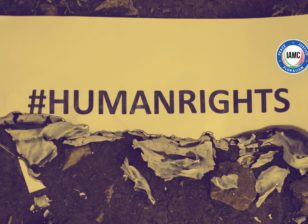Delhi academic jailed on bogus terror charges under draconian law is acquitted
A jailed academic whose case became a major cause for India’s human rights fraternity over five years of his incarceration, both because he is a prominent activist and because he is wheelchair-bound, was on Friday acquitted with four other accused.
Acquitting them, the Bombay High Court in Maharashtra state said the government could, however, try them again as the acquittal was based on a technical misstep. The court said the prosecution had failed to secure the mandatory governmental approval for prosecution. One of the accused, Pandu Pora Narote, died during the trial.
Saibaba taught at Delhi University before being arrested in 2014. He has been ill-treated by the government and denied medical care despite his serious health conditions. A trial court had convicted Saibaba and the others in 2017.
The prosecution had alleged that Saibaba was a member of a banned Maoist organization and had asked one of his co-accused to meet with a Maoist leader. It further claimed that the police had recovered a memory card and Maoist pamphlets and literature from Saibaba’s home. But the search itself was illegally carried out and many witnesses against Saibaba later recanted their testimonies.
Before his arrest on false charges under the draconian Unlawful Activities (Prevention) Act (UAPA), Saibaba was an outspoken critic of India’s Operation Green Hunt, a paramilitary offensive launched in 2009 to subdue a decades-old Maoist rebellion in central India.
Saibaba accused the security forces of carrying out mass human rights violations against the region’s indigenous people, including extrajudicial killings, enforced disappearances, torture, rapes and mass displacements of civilians.
Hindu extremist mob vandalizes mosque, attacks Muslim faithful in Gurgaon
An armed mob of Hindu extremists attacked and injured Muslims offering prayers inside a mosque in a village in Haryana’s Gurgaon district on Wednesday.
One victim said that the faithful, that included two elderly people, were offering prayers when a group of armed men barged inside raising slogans and threw them out of the mosque. He said the attackers also beat up Muslim women.
Three accused have been named but no arrests have been made so far.
Earlier that day, around 200 people had forcibly entered the mosque and threatened to expel the Muslim families living there. There are only four Muslim families in the Bhora Kalan village.
For over a year Hindu supremacist groups in Gurgaon have held protests opposing Muslims praying in public spaces despite the administration’s permission to the Muslims.
Haryana is ruled by the Hindu supremacist Bharatiya Janata Party (BJP).
Without evidence, Delhi court accuses Muslims of planning anti-Hindu violence
In continuing judicial persecution of Muslims, a court in India’s capital, Delhi, formally framed charges to start the trial of a local Muslim politician, Tahir Hussain, and five other Muslim men, accusing them of planning violence against Hindus.
Hussain and the others were arrested after Hindu extremists mobs carried out days of mass violence against Muslims in February 2020, killing at least 35 Muslims, wounding hundreds and rendering thousands homeless after burning down their properties.
Just last week, a civil society-led fact-finding team, headed by a former Supreme Court judge, concluded that the police and Hindu mobs had collaborated to carry out that violence. Nonetheless, the Delhi court has decided that Hussain and other Muslims were responsible for violence against Muslims.
In framing charges against Hussain and the other Muslims under the UAPA, Additional Sessions Judge Pulastya Pramachala baselessly claimed that the accused had hatched a conspiracy “to kill Hindus and harm (their) properties.”
Last month, the Delhi High Court, which is the appellate court, refused to stay Hussain’s trial.



